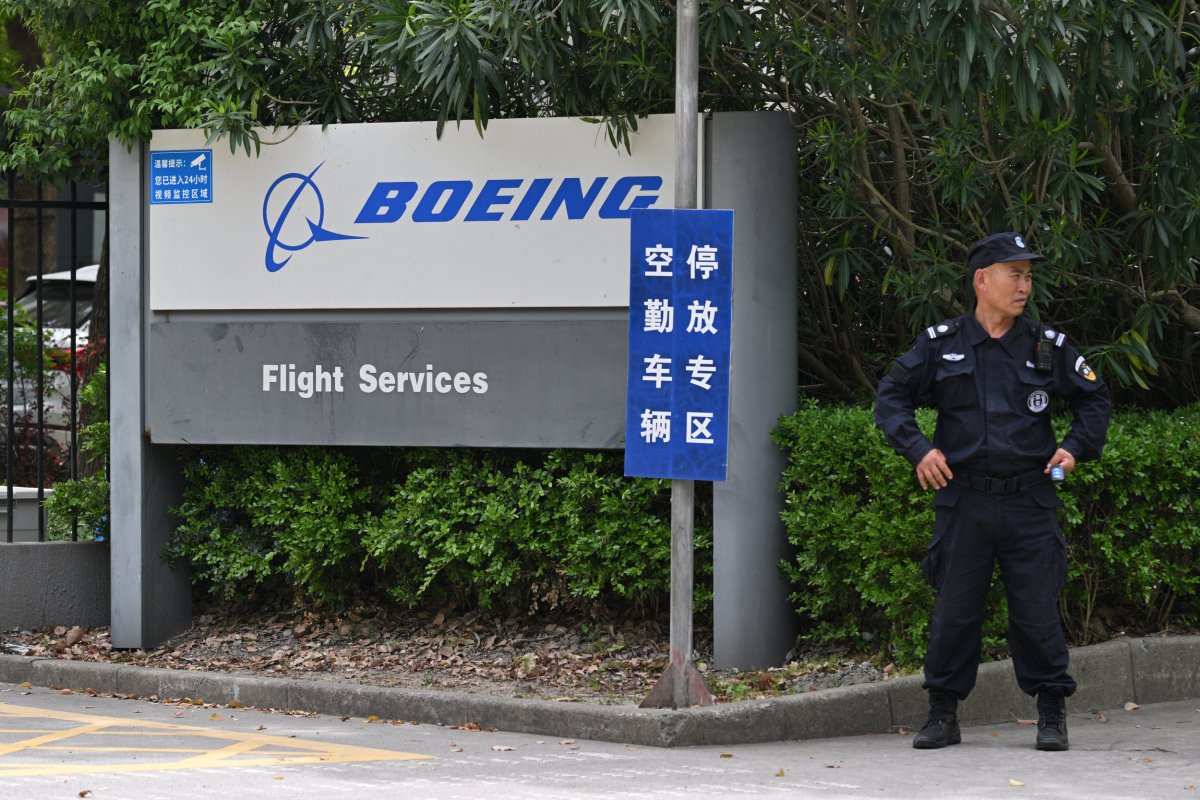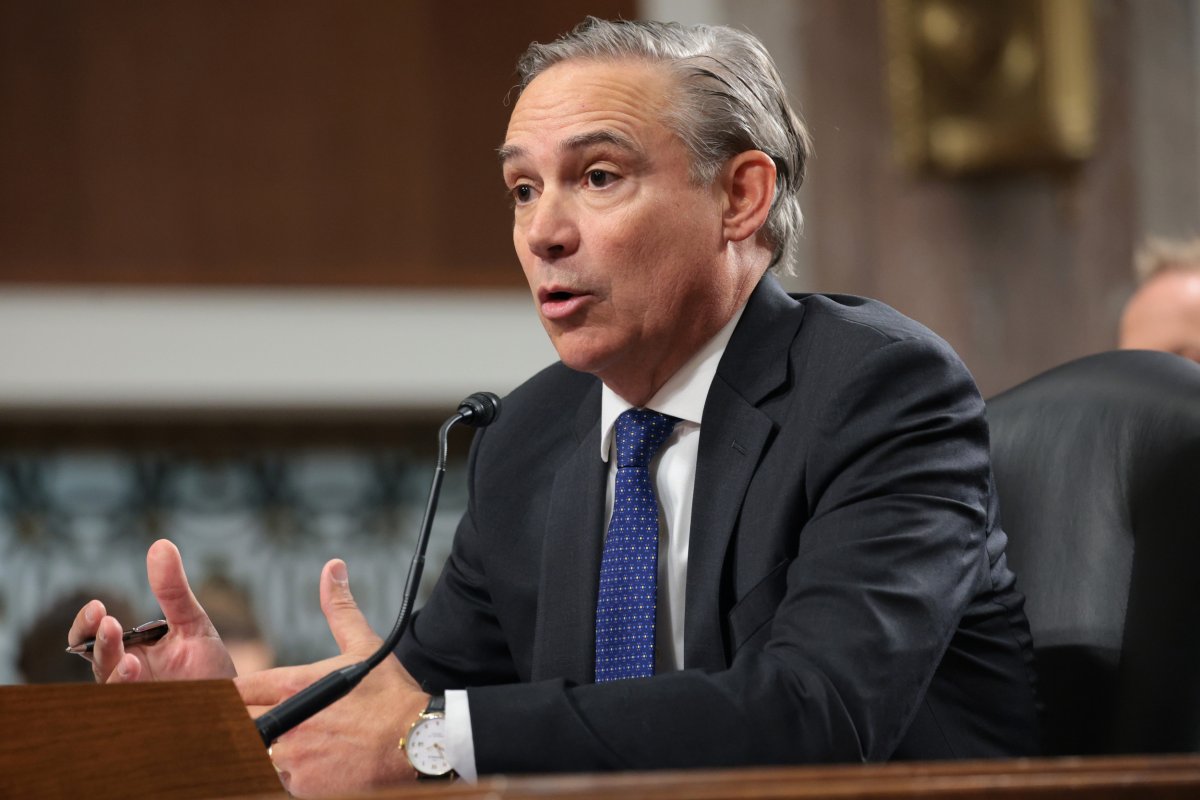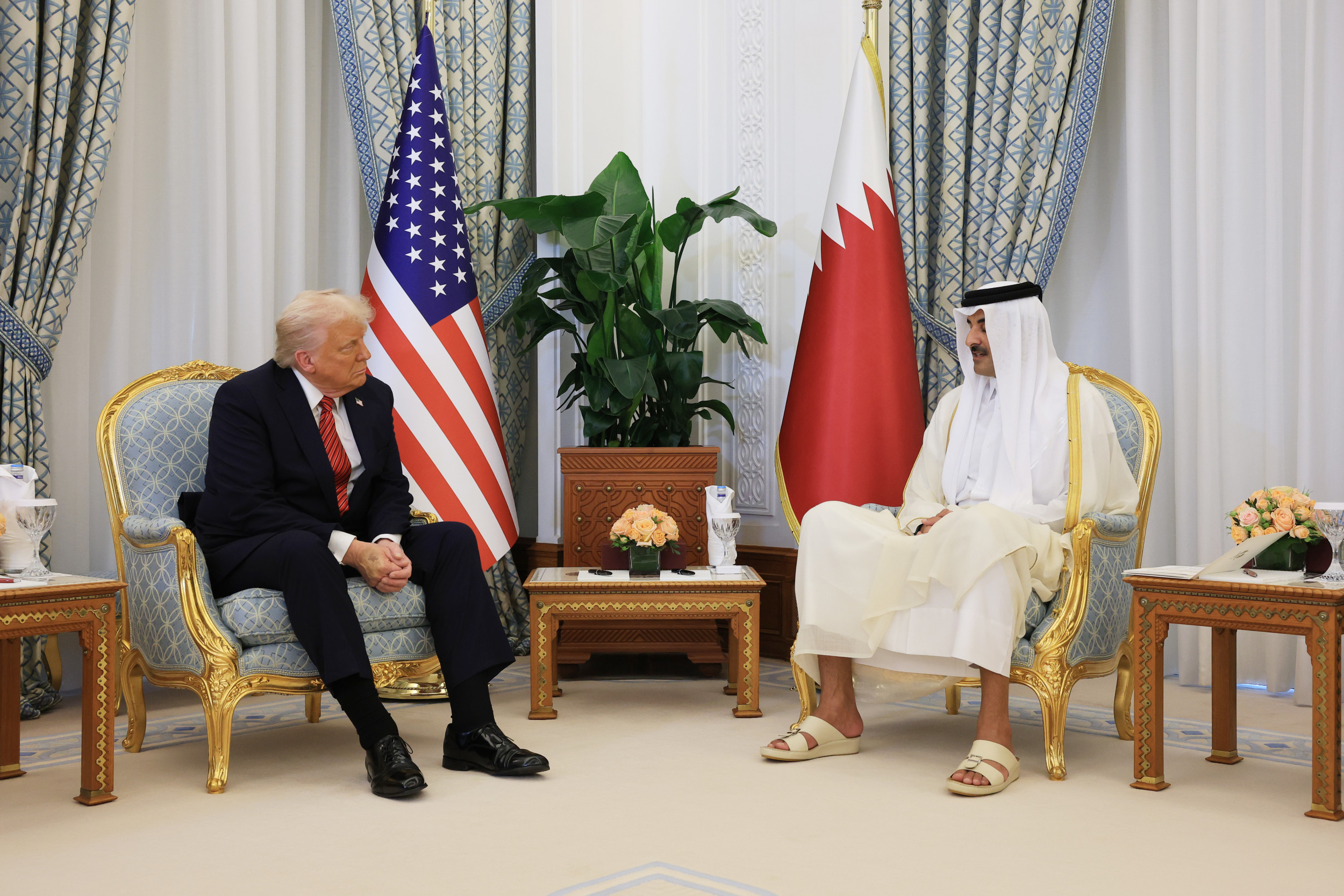🎙️ Voice is AI-generated. Inconsistencies may occur.
Boeing has reportedly been launched into the center of the U.S.-China trade war, adding to the difficulties already facing America's largest aircraft manufacturer.
According to Bloomberg, citing anonymous sources familiar with the matter, Beijing has directed its airlines not to take any further deliveries of Boeing aircraft, with a halt also placed on imports of aircraft-related parts from all American companies. The Wall Street Journal later reported that Chinese officials are also now requiring airlines to seek approval before accepting delivery of orders that have already been placed.
Boeing declined to comment on the reports when contacted by Newsweek.
China's U.S. embassy spokesperson Liu Pengyu told Newsweek he was not aware of the specific situation involving Boeing but said, "China has repeatedly made its position clear: there are no winners in a tariff or trade war. Imposing tariff hikes, resorting to pressure and coercion, these are not the right way to engage with China. We urge the U.S. side to give up its wrong approach of maximum pressure and instead resolve differences through dialogue based on equality, mutual respect, and mutual benefit."

China taking aim at a legacy American company appears to be the latest escalation of the ongoing trade war. The move, if confirmed, could spell trouble for the aerospace giant, already battling production delays and financial difficulties following a turbulent 2024—a year that saw its second-largest annual net loss of $11.8 billion.
In the short term, a pause or halt to deliveries to China could take a toll on Boeing's bottom line. According to analysis by equity research firm Bernstein, cited by The Wall Street Journal, a halt in deliveries to China could result in a roughly $1.2 billion hit to the company's cashflow this year.
Commercial aviation expert Addison Schonland told Newsweek that the immediate impact on Boeing is unlikely to be significant, as China has not ordered a new Boeing product since September 2021, and the country's civil aviation authority "has slowed Boeing's deliveries to China for some time."
However, a halt to Chinese deliveries would add to the threats Boeing already faces as a result of Trump's tariff policies and the foreign retaliation these have resulted in.

Both the 125 percent tariffs on U.S. imports announced last week, and the 145 percent tariffs on Chinese goods that prompted these, were already expected to more than double the price of Boeing aircraft and components, according to Axios.
While Boeing CEO Kelly Ortberg said in late January that the company's U.S.-based manufacturing operations meant he was "not too worried" about the impact of the Trump administration's trade measures, he recently expressed concern that retaliatory actions by America's trading partners could hurt the export-reliant company.
"Eighty percent of the commercial airplanes we deliver are outside of the United States so free trade is very important to us," Ortberg said during recent Senate hearing on aviation safety.
"We really are the ideal kind of an export company where we're outselling internationally. It's creating U.S. jobs, long-term high value U.S. jobs," he added. "So it's important we continue to have access to that market and we don't get in a situation where certain markets become closed to us."
"If we are unable to deliver aircraft to customers in China consistent with our assumptions and/or obtain additional orders from China in the future, we may experience reduced deliveries and/or lower market share," the company warned in its 2024 annual report. "Impacts from future potential deterioration in geopolitical or trade relations between the U.S. and one or more other countries could have a material adverse impact on our financial position, results of operations and/or cash flows."

Chinese airlines do not yet constitute a major portion of Boeing' overall order book—accounting for only 51 of the 334 aircraft it delivered in 2024. However, according to Reuters, the country's three largest airlines had planned to take delivery of 179 planes between 2025 and 2027, and the market forms a central part of Boeing's long-term growth strategy.
In its commercial market outlook for 2024 to 2043, Boeing anticipated making 8,830 deliveries to China, accounting for around 20 percent of all global deliveries over this period.
However, the company may only need to focus on the short term, according to Schonland, founder of the aviation media and analysis firm AirInsight.
"This trade spat will go away after some time," he said. "Boeing has customers outside China who are eager for new airplanes."
Given its existing, seven-year order backlog, Schonland said he expects Boeing to continue to work as normal and produce "as many aircraft as possible."
He added that the real challenge would be for China, which has limited alternatives for outfitting its airlines' fleets, given production issues also facing Boeing-rival Airbus, and the constrained capacity of the state-owned Commercial Aircraft Corporation of China, which "struggles more than anyone to make airplanes."
Nevertheless, Trump has been urged to step in and change course given the challenges the trade war may pose to Boeing—a U.S.-based manufacturer and major exporter which by all accounts embodies his vision of the consummate American company.
"Boeing is the U.S.'s largest exporter, as such, we are not surprised by China's move; however, we do see this as unsustainable," Bank of America aerospace and defense analyst Ronald Epstein wrote in a note on Tuesday, cited by Fortune.
"When considering balances of trade, we think the Trump Administration can't ignore Boeing."
Update 04/17/25 10:17 a.m. ET: This article was updated with comment from the Chinese embassy spokesperson in Washington D.C.
About the writer
Hugh Cameron is Newsweek U.S. news reporter based in London, U.K. with a focus on covering American economic and business ... Read more




